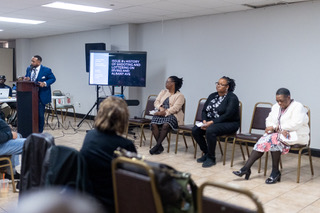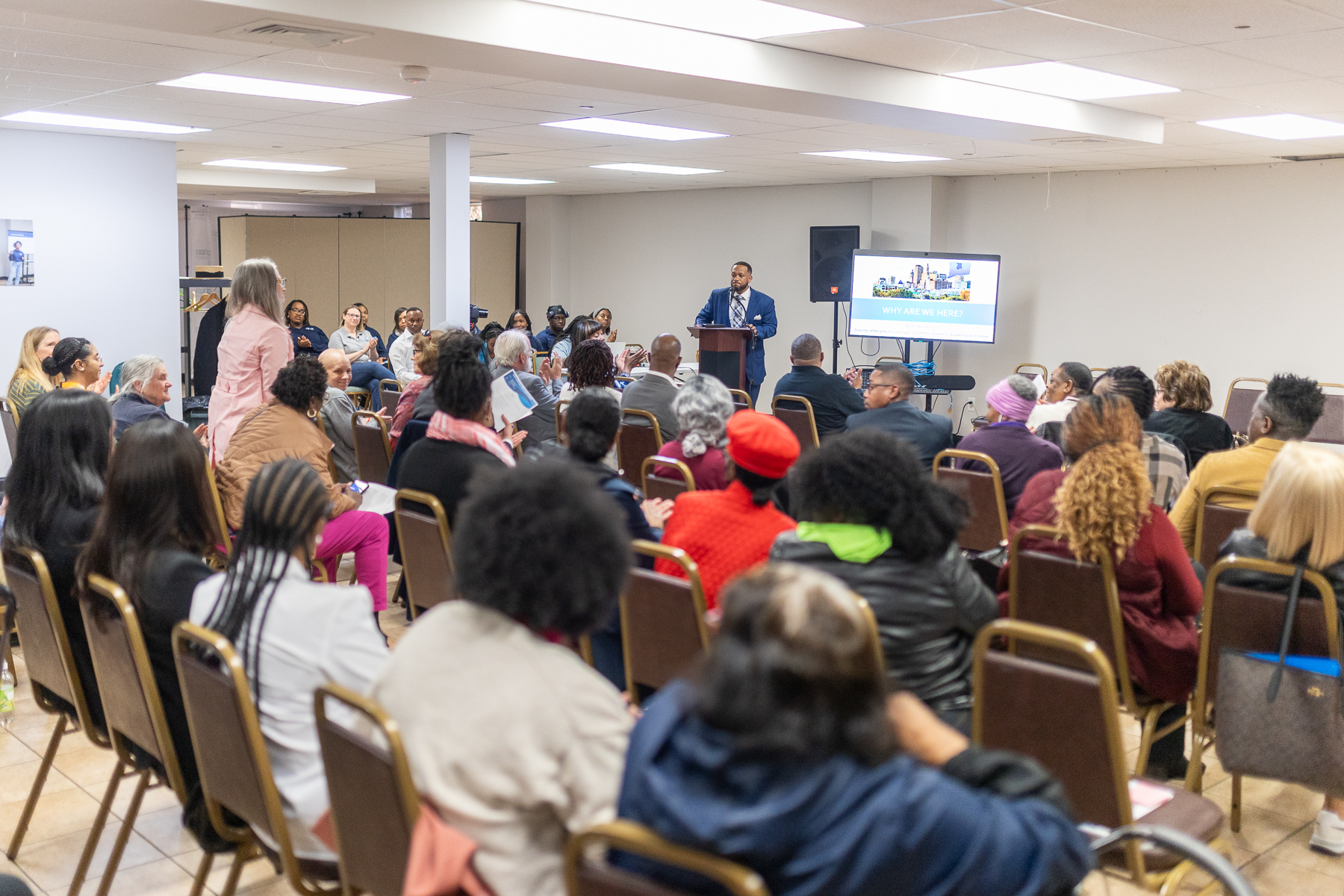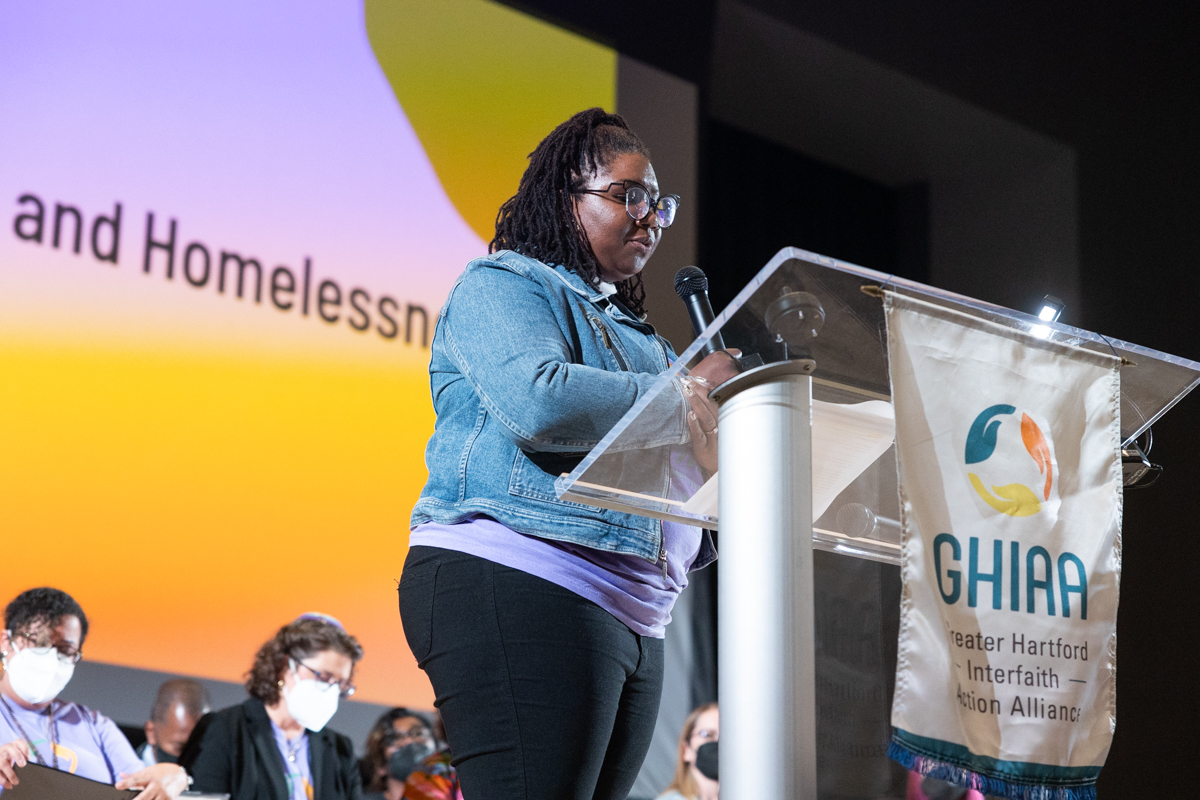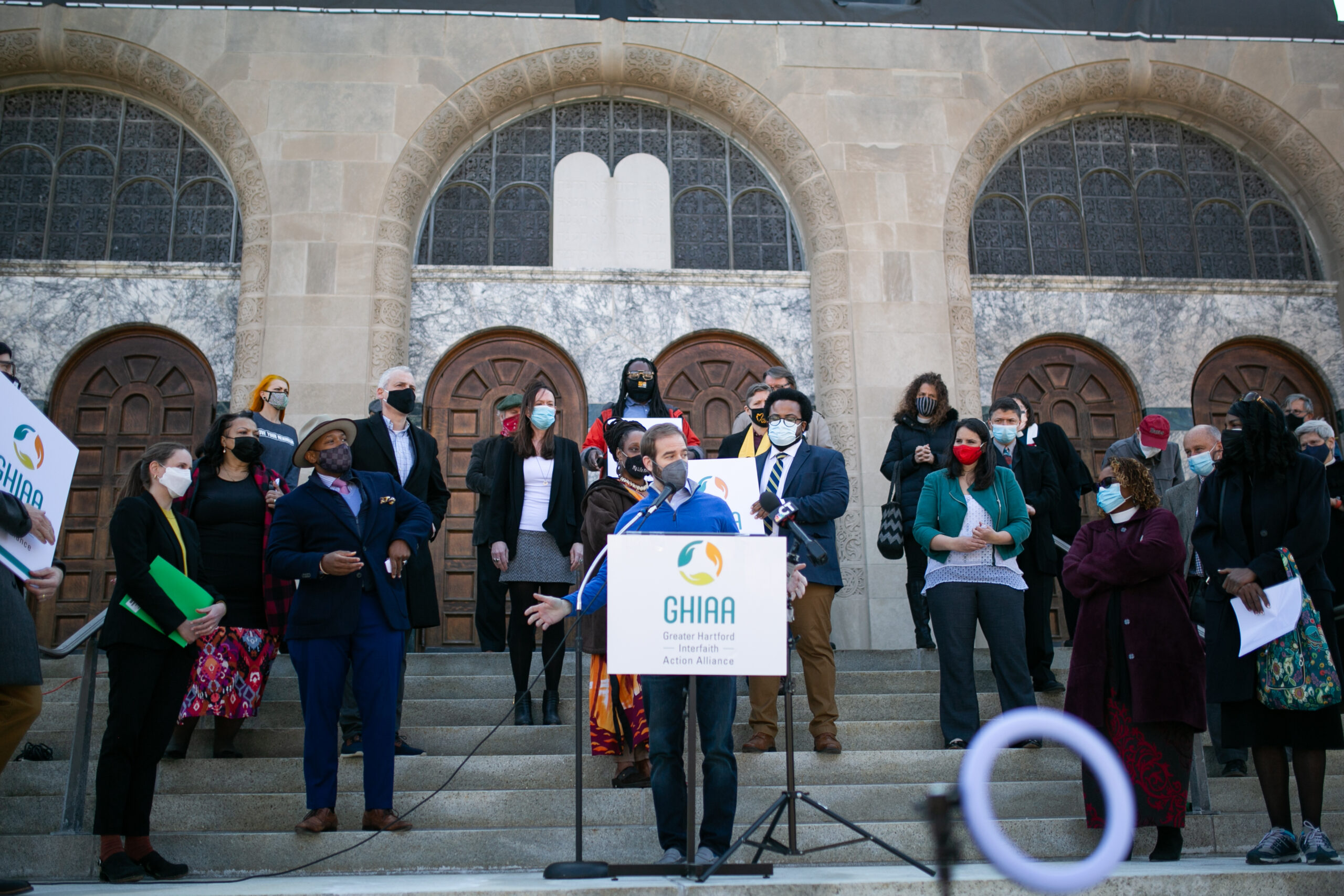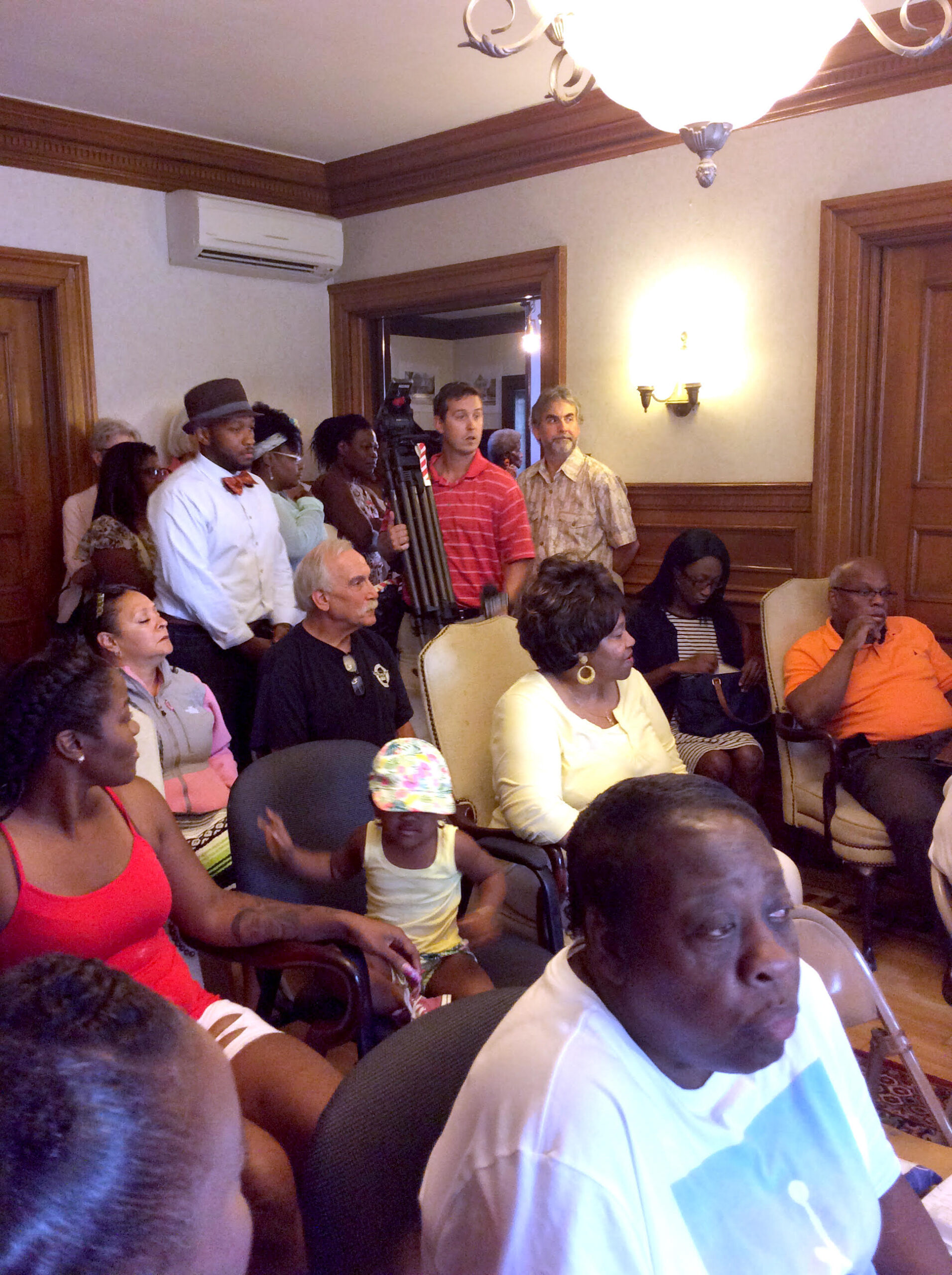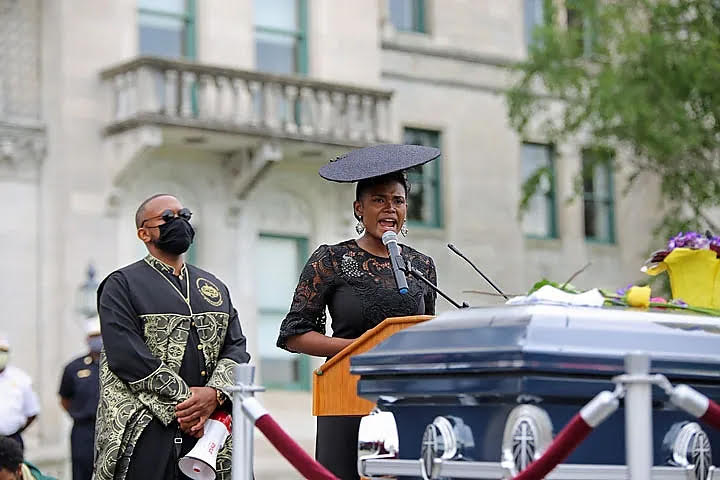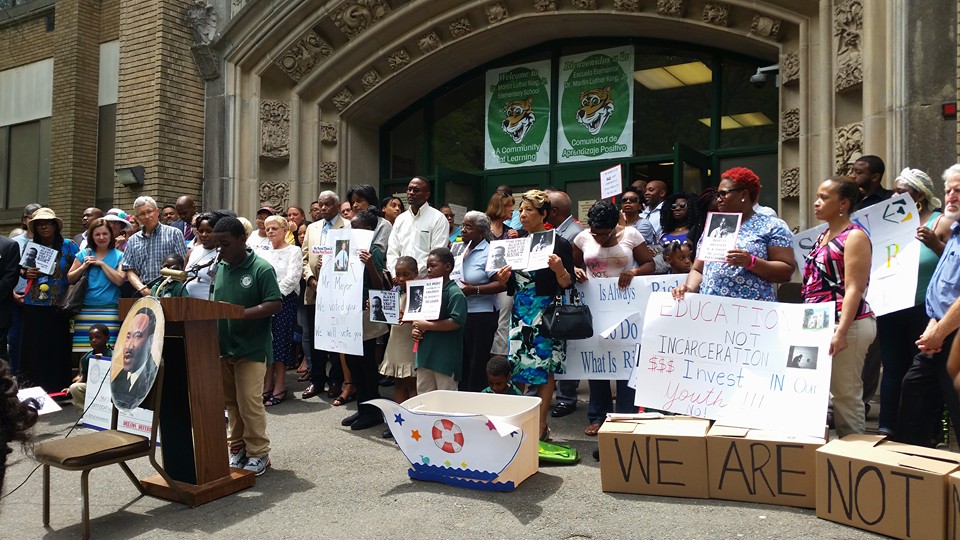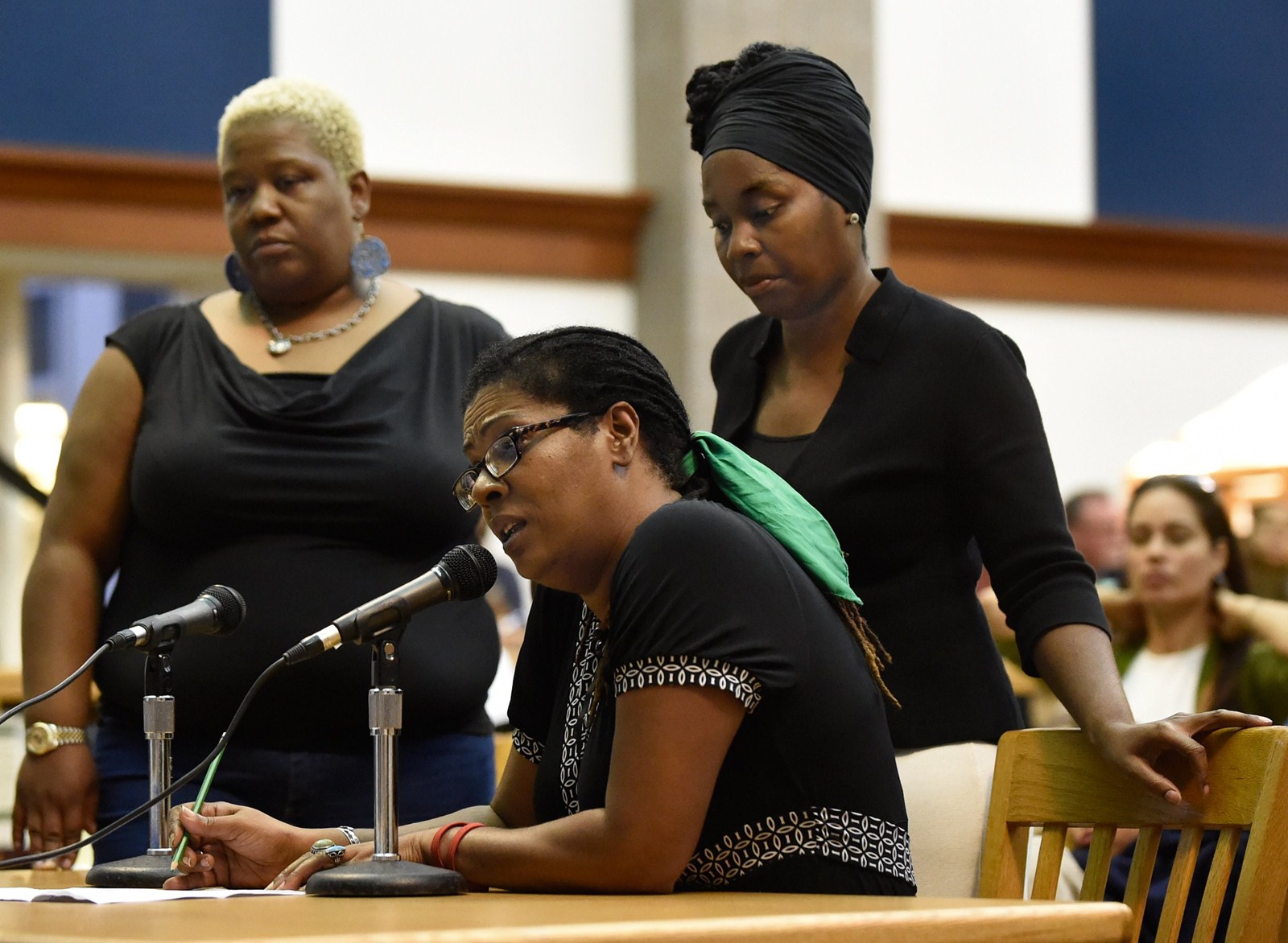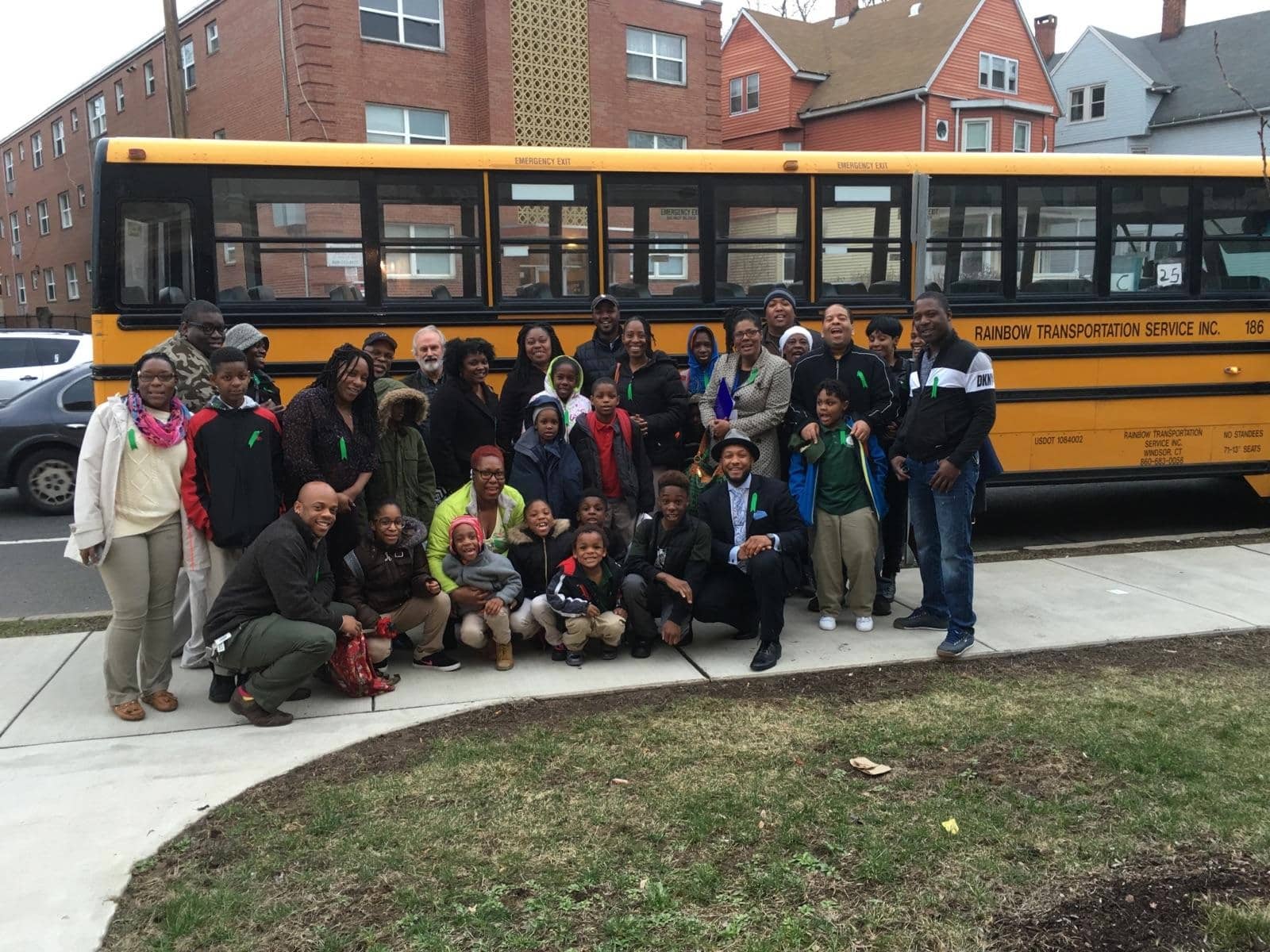Neighborhood Organizing
Current Campaigns
Irving Street: In 2021, the Center for Leadership and Justice (CLJ) began organizing with residents of Irving Street in Hartford’s Northend to combat rising gun violence and unrest. Residents, fearful of leaving their homes, collaborated with CLJ to tackle loitering and successfully secured a commitment from the Hartford Parking Authority for a parking pass system. This campaign also led to the North Hartford Public Safety Summit, in partnership with organizations like Hartford Community that Cares and Blue Hill Civic Association, expanding resident engagement and leadership development.
A significant achievement of the Irving Street Campaign was the commitment to develop a long-neglected parcel of land at 614 Albany Ave into a much-needed multi-use housing development.
Albany Avenue Development: As residents of Irving Street started to organize for safer streets, they realized that the vacant and blighted police substation and the deteriorating basketball park at 614 Albany Ave was neglected space that was ground zero for much of the unrest Irving Street residents were experiencing.
After a long organizing campaign, residents won a commitment from the city to develop a mixed-use development. Residents then organized to secure a developer for this project and they continue to work to make sure that this development reflects the needs and desires of the neighborhood. Construction is expected to start in 2026.
Past Campaigns
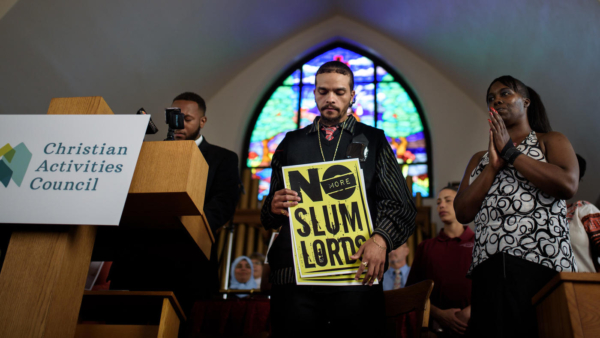
Fire Displacement: In July 2015, a fire at 56 Vine Street displaced 32 residents from their subsidized apartments in Hartford. They were temporarily moved to an unsanitary motel with no facilities for meal preparation. Due to inadequate security by the landlord, their apartments were looted. Despite having a legal obligation, the City of Hartford failed to provide adequate relocation services including temporary housing.
The Center for Leadership and Justice (CLJ) organized the affected residents, who held meetings and press conferences. Their efforts not only secured relocation benefits but also led to a successful class action lawsuit with Greater Hartford Legal Aid, resulting in a $2.75 million settlement for the residents who were denied these benefits during the past 10 years.
School Busing for North End Students
When Weaver High School in Hartford’s Northend closed for renovations, its football team and cheerleading squad merged with Bulkeley High School in the Southend. Although Weaver’s athletes were bused to Bulkeley after school, they had to find their own way back to the Northend after practices or games, sometimes as late as 10 PM. This situation raised significant safety concerns for parents, as students often had to walk the distance.
The Center for Leadership and Justice (CLJ) organized the concerned parents, who successfully advocated for the school district to provide busing both to and from practices and games.
Milner School Initiatives
In 2014, the Center for Leadership and Justice (CLJ) began working with parents from Milner School on Vine Street. One of their early successes was implementing Freedom School, a six-week, free summer program for grades K-3, which boosted summer school attendance from about 15 students a day to 75 students daily, effectively addressing summer learning loss.
Parents raised concerns about traffic safety, as the playground lacked a gate. Cars occasionally cut through the school grounds, at high rates of speed. As a result of organizing efforts with CLJ, parents won the installation of a safety fence around the playground.
When it was announced that Milner School would close, and students would need to walk to alternative schools, CLJ collaborated with parents to secure busing for all students, addressing the risks associated with walking through areas with high crime and drug activity.
No More Slumlords Campaign
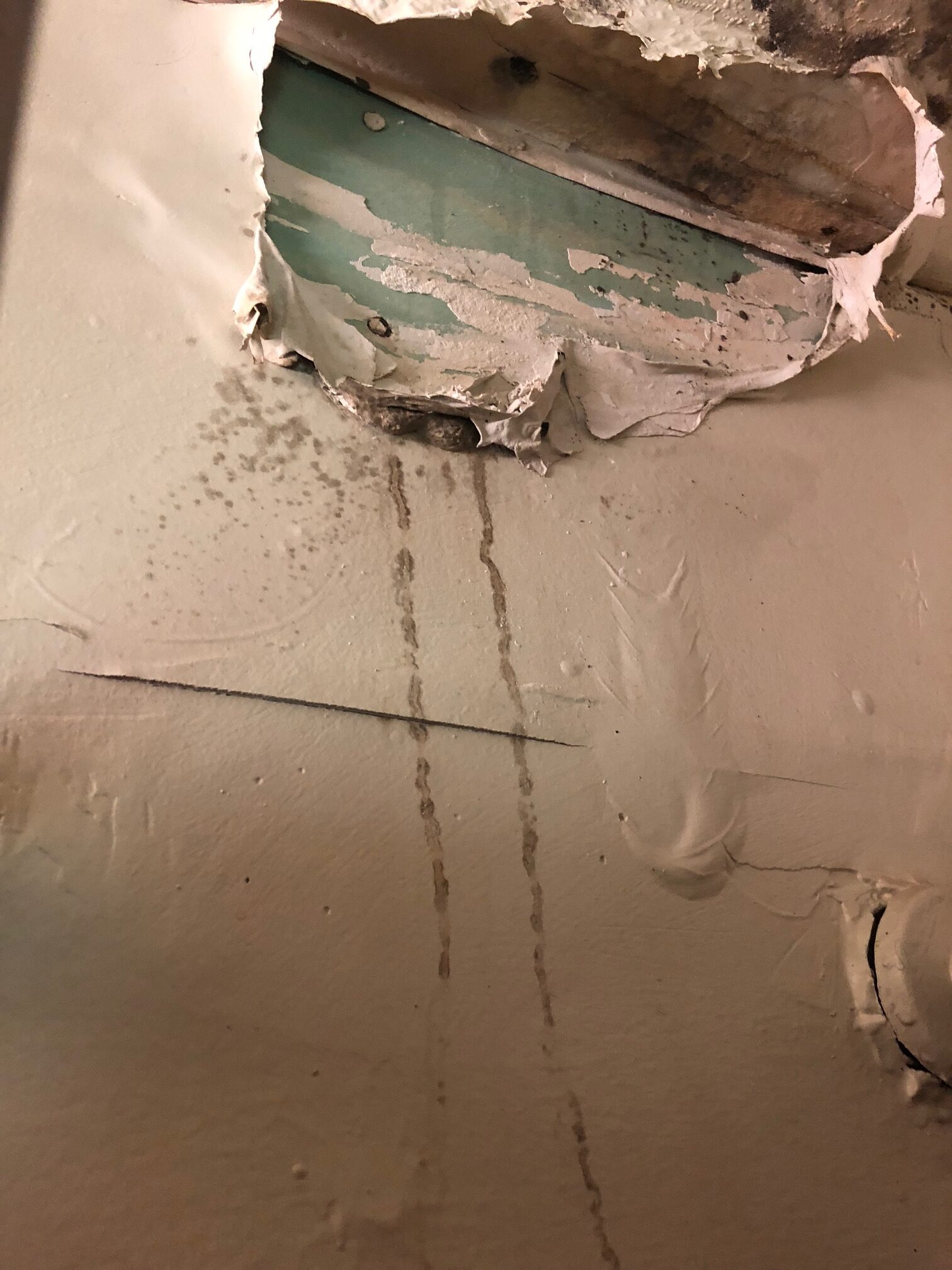
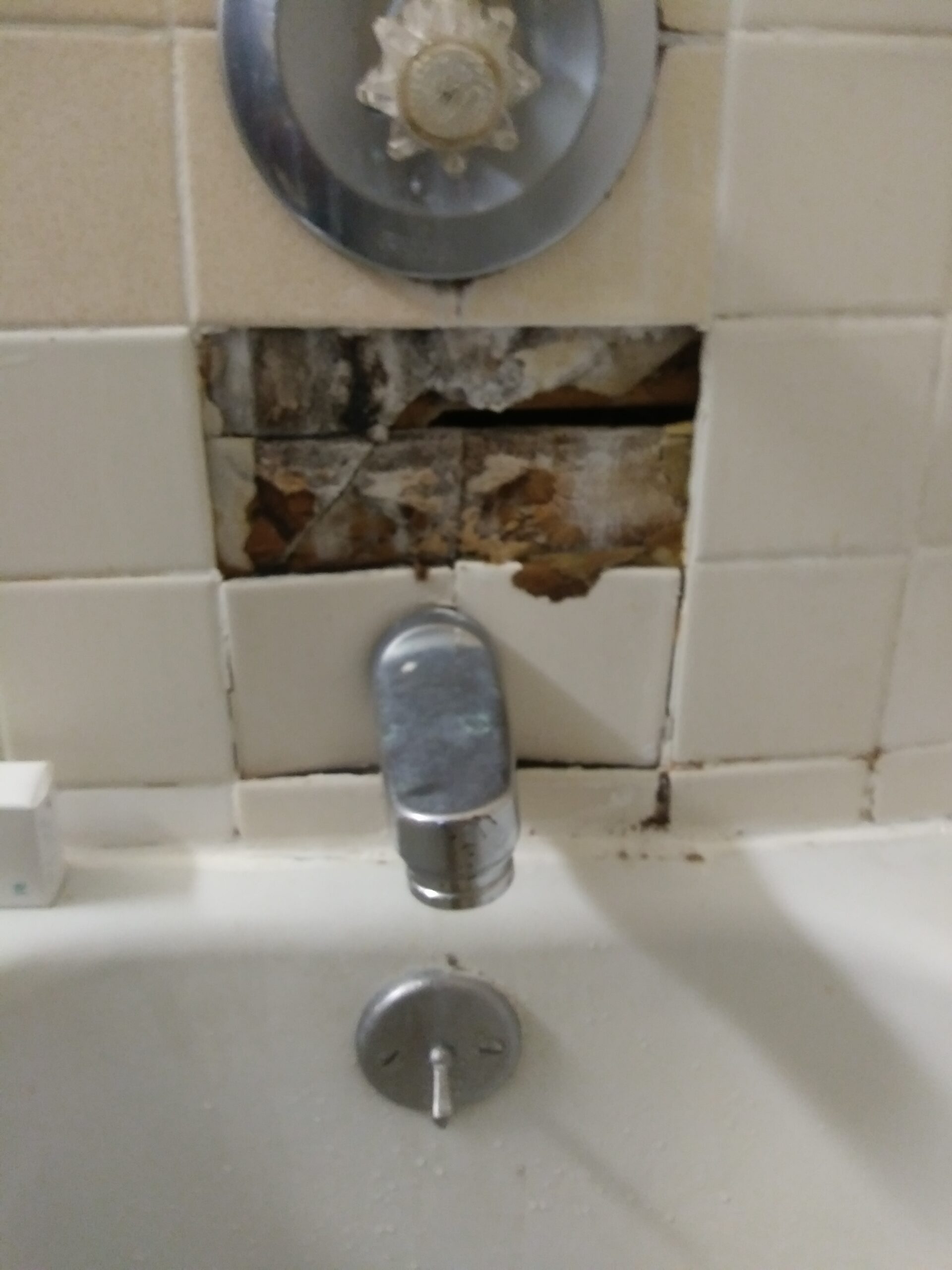
In 2016, the Center for Leadership and Justice (CLJ) was alerted to a rodent-infested apartment building on Albany Ave, managed by notorious slumlord Emmanuel Ku. Residents, unable to reach Ku, started organizing with CLJ’s help and discovered he owned 25 buildings in the area. This sparked the “No More Slumlords” campaign. CLJ organized a core leadership team of directly impacted residents.
The campaign involved numerous public actions, accountability meetings with HUD officials, and a visit from HUD Secretary Ben Carson. It successfully pressured the City of Hartford to revoke Ku’s tax abatement. In May 2017, HUD announced the cancellation of Ku’s $1.4 million contract, relocating all affected families to safe and sanitary housing.
Residents from other Northend properties, Barbour Gardens and Infill Apartments, also sought CLJ’s help. These efforts uncovered slumlords’ tactics for passing federal inspections, leading to criminal charges against landlords for lacking fire detection systems. The campaign resulted in the relocation of families and loss of an $800,000 HUD contract for the landlords.
Committed to deeper systemic change, residents collaborated with the city to revamp Hartford’s housing code, the first update in 40 years. The new code mandates landlord licensing which requires inspections of all units to obtain the license and reinspection at various intervals to retain the license. Fees associated with this process have provided revenue to increase the number of housing inspectors for the City of Hartford.
Moreover, CLJ and several residents filed a class action lawsuit against HUD, the City of Hartford, Hartford Housing Authority, and Imagineers for failing to provide fair housing choices in the relocation process. This resulted in a settlement allowing residents to relocate if the initial move did not meet their neighborhood preferences. CLJ secured funds for these relocation expenses. CLJ was represented by Open Communities Alliance in partnership with Jerome N. Frank Legal Service Organization, the Lawyers’ Committee for Civil Rights Under Law, and Covington & Burling LLP
***Great coverage on slumlord campaign can be highlighted here: NBC News Article. Wonder if we might draw attention to it somehow on the site?
MLK School Renovations
Fight to Keep MLK Jr. School Open: Do Not Warehouse MLK Kids in a Basement to Balance the Budget!
On June 1, 2016 residents and community leaders, organized by the Center for Leadership and Justice (CLJ), then called the Christian Activities Council, held a press conference outside of Martin Luther King, Jr. school demanding that the city not close the school. CLJ began organizing MLK parents and staff in early 2016, at their request, when the MLK school community became frustrated with a lack of communication regarding the plans for renovation and the location of the swing space.
MLK has been slated for renovations many times and each time the renovations get close, the funds were diverted elsewhere leaving many years of no investment at MLK. In 2016 it looked as though renovations were really going to happen.
The plan that was shared with the families and MLK staff was that they would house all 350 students in a basement of a school across the street. The space was completely inadequate for 350 students.
While families were considering and researching alternatives, it became known that the City of Hartford had reallocated the funding for MLK School and renovations were not going to happen, but the kids were still being forced out of the school. The reason is that the City wanted to close the school.
The organizing campaign then transitioned from trying to find adequate space for the kids to keeping the kids in the building until renovations and/or a long-term plan was responsibly put into place.
Under significant scrutiny and pressure from organized parents and residents, the district announced on June 14, 2016 that the school would remain open.
In September of 2020, the school reopened as a state-of-the-art middle school after an $111 million renovation.
Quotes from various press releases:
According to Cori Mackey, Executive Director of Christian Activities Council, “school closure policies have not been followed. When a school is set to be closed, there are policies that require two public hearings, a comprehensive building report, and a vote by the board of education. These policies have not been followed and we demand the respect of that kind of transparency.”
Furthermore, Mayor Bronin tells us this is the board of education’s issue and that it is outside of his role to step in and demand an equitable solution.
Natalie Langlaise, SGC President and MLK Parent says, “I am a single mom trying to raise my son. That has enough difficulties, but to be thrown into a system with no long term plan, leaders who seem to make decisions without thoroughly thinking through the implications, and a complete lack of communication is unsettling and adding unnecessary anxiety to my job as a parent and to my child who is stressed under these conditions. We deserve more and demand to stay at MLK until there is a long term, equitable plan for our children.”
Rev. AJ Johnson, an organizer with the Christian Activities Council says, “Today, we call on Mayor Bronin, City Council, and the Board of Education to stop the relocation process for MLK students until a long term plan is in place that is in the best interests of our students, following their own policies and protocols and school closings.”
Organizing Process

We follow the principles and practices of relational organizing, grounded in a firm commitment to antiracism. We believe that deep and authentic relationships are the foundation of all we do. Therefore, we begin by listening to people’s stories. From there, we identify shared themes in our struggles. We distill broad, nebulous problems into specific, concrete issues where we can use our collective power to create systemic change. We analyze power, identify root causes, act strategically, and evaluate our campaigns to learn from our successes and failures.
Individual Meetings: Individual meetings are the fundamental building blocks of organizing together. They are an opportunity for two souls to connect face-to-face.
House Meetings: House meetings are 60-90 minute conversations with 6-10 people facilitated by a leader. They are an opportunity for people to deepen relationships, engage one another, and imagine together how to improve our neighborhood and city. Effective house meetings are built around good storytelling: stories that illustrate people’s deepest concerns and stir us to action.
Research & Cutting Issues: Common issues that arise from the house meetings are then researched and cut into campaigns that are specific and resolvable.
Action & Evaluation: We hold structured public actions where leaders and organizers confront decision makers capable of effecting desired change. We evaluate our work every step of the way as we continue moving through the cycle.
Trainings and Actions
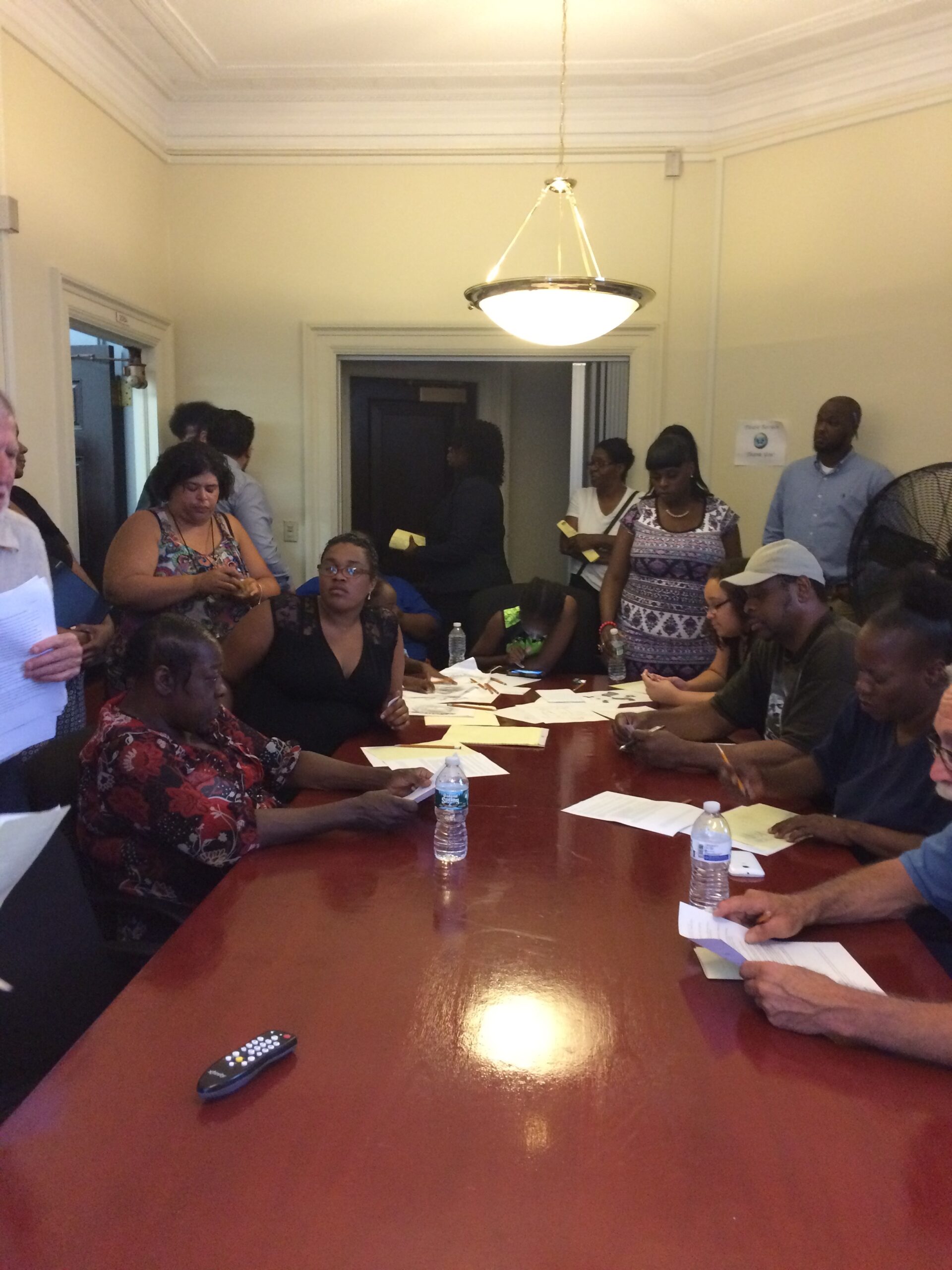
2025 Citywide Community Organizing and Leadership Development Training
- Orientation: Wednesday, April 2, 2025, | 6:00 PM - 7:15 PM
- Sessions: April 9, 2025, | 5:30 PM - 8:00 PM
- April 23, 2025, | 5:30 PM - 8:00 PM
- April 30, 2025, | 5:30 PM - 8:00 PM
- May 7, 2025, | 5:30 PM - 8:00 PM
- May 14, 2025, | 5:30 PM - 8:00 PM
Voice a concern
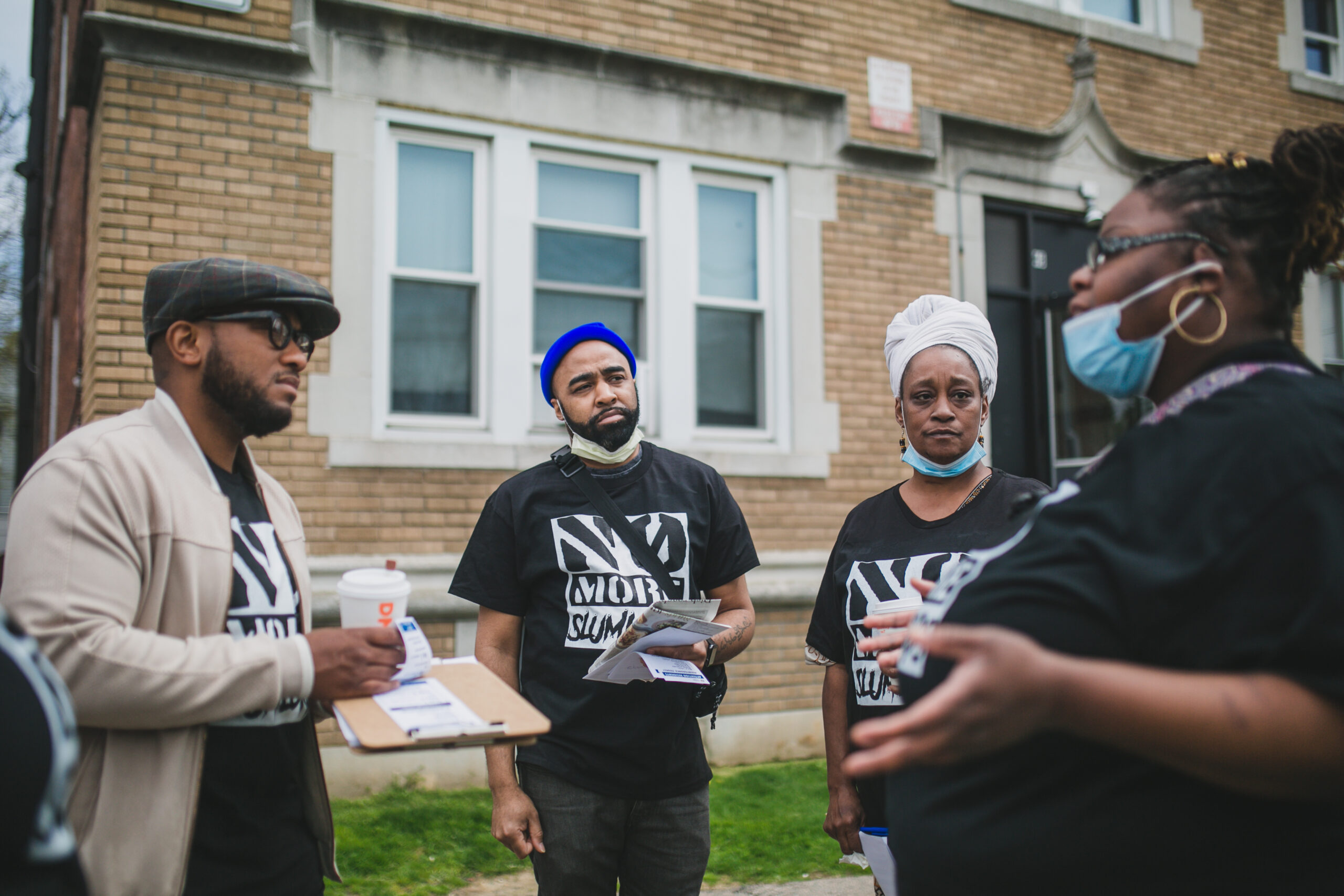
Are you concerned with something you see in your neighborhood? Are you and your neighbors experiencing an injustice with your housing situation?
Fill out the form below to get in touch with an organizer to begin the fight for change:
